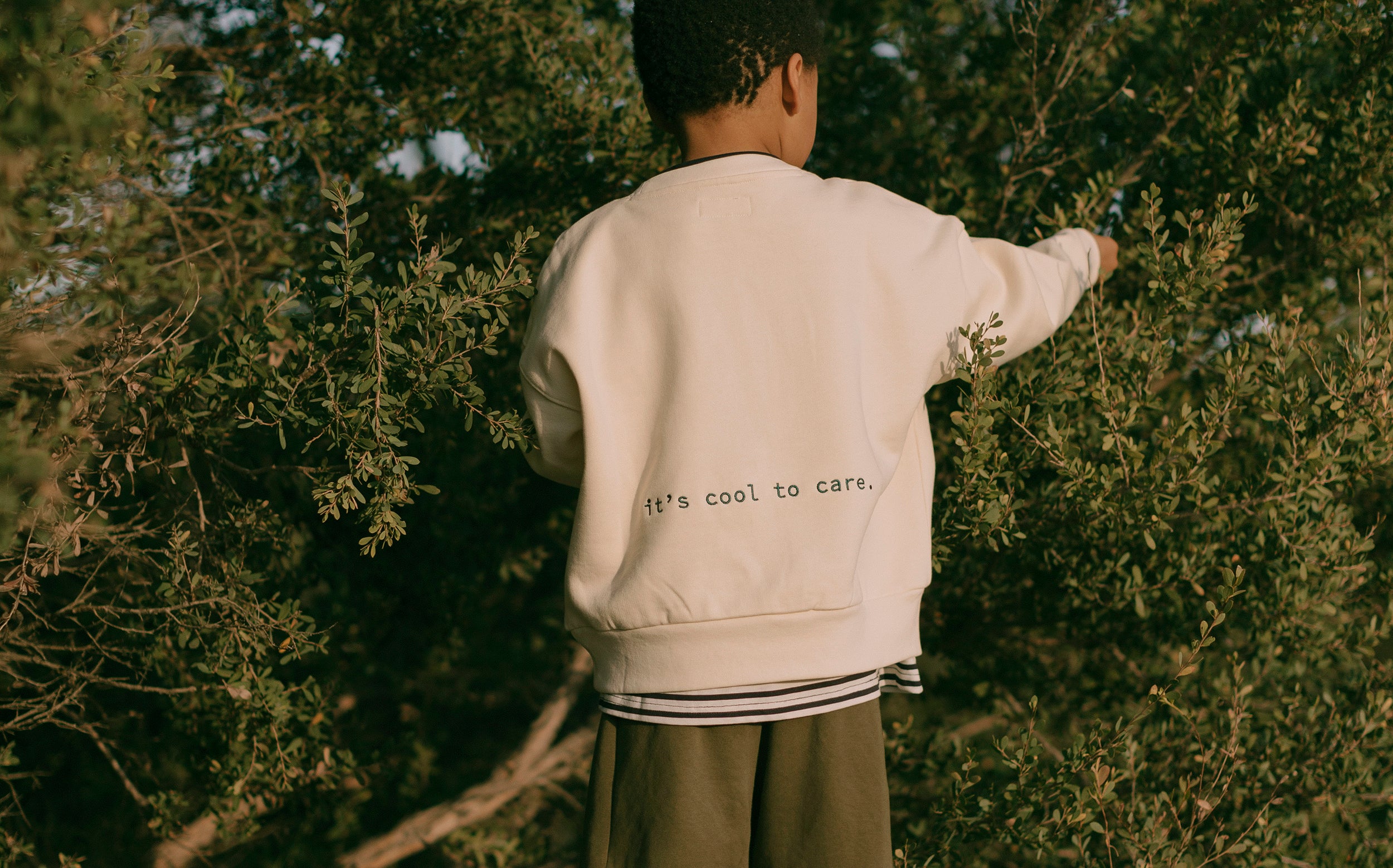
Sustainability
Mini People, Mighty Impact.
The Fast Fashion industry has a lot to answer for. Unfortunately, it is the 3rd most polluting industry in the world, behind fossil fuels, and agriculture. It is responsible for 10% of the worlds CO2 Emissions, and is one of the highest consumers of water. This, combined with the growing issue of non-biodegradable landfill, and microplastic pollution, means we at OLLE are determined to do things differently.
Here's how.
Why are biodegradable fabrics in apparel so important?
Only 40% of the clothing manufactured today is biodegradable. With synthetic fibres — all of which are derivatives of plastic — now accounting for 60% of the material that make up our clothing worldwide. This means that up to 60% of the contents in Global Landfill sites will either never break down, or will take 100’s of years at best.
For this reason, we will always favour natural fibres such as organic linen, cotton, hemp, ramie and wool as our primary materials (and endeavour to work with cutting edge technology such as CiCLO® on our synthetics), as these fibres break down in landfill conditions within 3-5years.
Why is Organic Cotton better than Conventional Cotton for the environment?
Organic cotton requires up to 91% less water than conventional cotton, and is grown without any pesticides or fertilisers. Crops are rotated more easily, and the health of the soil is maintained. Despite this, organic cotton represents only 1% of global cotton production.
In fact, more chemicals are used in the production of conventional cotton, than of any other crop. On average, nearly 1kg of pesticides is used per hectare of cotton field. These chemicals can harm the people working in the fields, and contaminate surrounding ecosystems.
Organic cotton production helps preserve natural habitats and keeps water supplies free from toxic chemicals. Additionally, because fossil fuel-based fertilizers and most synthetic pesticides are prohibited in organic farming, it has a significantly lower carbon footprint.
What is a GOTS Certification, and why is it important to OLLE as a Brand?
The Global Organic Textile Standard (GOTS) is a quality assurance system based on on-site inspection and certification of the entire textile supply chain – from harvesting, through to processing and trade. This transparency gives OLLE, and our customers, the assurance that we are purchasing truly organic products, sourced from only green supply chains.
We will only ever use GOTS certified organic cotton in our garments.

What is CiCLO® Technology, and why is microplastic fibre shedding a problem?
We’re committed to making a healthier, happier planet. That’s why we’re using CiCLO® technology in our children’s boardshorts – We’re a world first, actually!
We know that using fabrics like polyester or polyamide in garments like swimwear, is essential. These materials are hard wearing with great functionality, and have the ability to provide wonderful UPF sun protection. But inherently, they are plastics. Microplastic fibres shed during every stage of the garment lifecycle, from manufacturing, through to washing and wearing. And microplastics persist indefinitely.
CiCLO® technology is an upstream solution that allows synthetic plastic-based fibres to behave more like natural fibres. Adding CiCLO® fibres to our fabrications doesn’t change the way they perform when we use them, but, if they end up in the environment as fugitive microfibers that cannot be recaptured, even though they’re made of plastic or synthetics, they will biodegrade at rates comparable to natural fibres like cotton or wool. Pretty exciting stuff!
Made to last, doesn’t have to mean here forever!
Nearly 35% of microplastics dispersed in the ocean each year, come from textiles. Our use of CiCLO® technology means we are doing our bit to reduce this.

EXPLORE OUR RANGE



